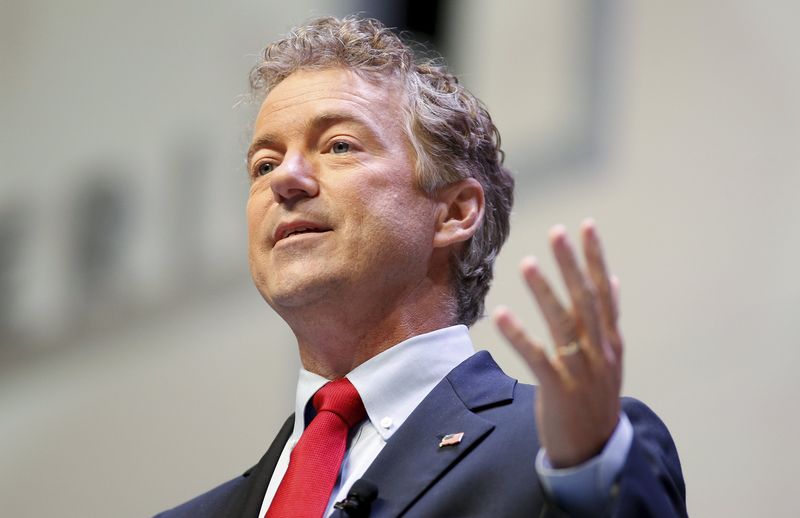Investing.com’s stocks of the week
By Alana Wise and Grant Smith
WASHINGTON (Reuters) - Republican Rand Paul raised about $2.5 million in the third quarter for his 2016 presidential campaign, a sharp slowdown from the prior three months and a number that could underscore worries about the viability of his campaign.
The total reported by the Paul campaign on Thursday for the three months ended in September was just over a third of the $7 million that the U.S. senator from Kentucky raised in the second quarter. The haul was dwarfed by Republican rival Ben Carson's $20 million third-quarter sum.
Paul's campaign played down concerns that the slower fundraising pace was a sign his campaign was in trouble.
"Between visits to early primary states with crowds in the hundreds, a strong debate performance, new polling which indicates a clear uptick, we are pleased to have raised approximately $2.5 million," Paul's communications director, Sergio Gor, said in an email.
The latest haul leaves the campaign with $2 million cash on hand, the campaign said.
The Republican field has shrunk from 17 to 15 in recent weeks. Paul was favored by just 2.4 percent of Republicans in late September, according to a Reuters/Ipsos poll.
Paul ranked fifth in fund-raising among the Republican candidates for the previous quarter, when his campaign committee and three allied Super PACs raised a combined $13 million. That was far behind top Republican fund-raiser Jeb Bush, whose campaign and Super PAC brought in a combined $114.6 million in the same period.
One of the three Super PACs backing Paul, PurplePAC, announced earlier this week that it would halt fundraising efforts indefinitely, citing a belief that Paul had moved too far away from the libertarian-focused message that first caught their attention.
Paul's team distanced itself from PurplePac, saying the group was never sanctioned by the Kentucky senator's campaign nor had it provided material support.
A Paul campaign spokesman said that the PACs that were set up to help the candidate "remain active and ongoing."
Super PACs, which can accept unlimited contributions from individuals and corporations but cannot coordinate with the campaign, do not have to report on their fund-raising again until the end of January.
